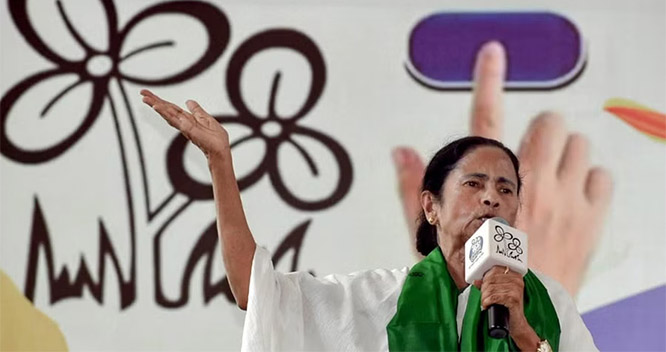Beijing, Oct 14: Calls for boycott of Chinese goods in India following China's opposition to a UN ban on JeM chief Masood Azhar have failed as sales of Chinese products in the country hit a record high during the festive season, official media here said today.

"However, regardless of the passionate boycott in India and Indian media's hysteric reports of a "doomsday" for Chinese products, Chinese goods have never been condemned by Indian government and are popular across the nation," it said.
"The boycott has not achieved success. Sales figures for Chinese products on the top three Indian online retailers in the first week of October hit a new record.
Amazingly, the Chinese mobile phone company Xiaomi sold half a million phones in just three days on the Flipkart, Amazon India, Snapdeal and Tata CLiQ platforms," the article said.
Referring to the boycott calls over China's technical hold on moves to bring about a ban on Azhar as well Beijing obstructing India's membership in the Nuclear Suppliers Group, (NSG), it said.
"Chinese products are often the victim when regional situations get tense, and this phenomenon has been existing for quite a few years. Now Chinese goods are on the stage again due to the Kashmir issue," it said.
"The bilateral trade relationship is one of the pillars of the Sino-Indian relationship. The trade volume was over USD 70 billion in 2015, and China's investment in India soared to around USD 870 million in 2015, six times what it was in 2014," it said.
India has been expressing concern over the trade deficit which last year touched USD 46 billion.
"To some extent, the economic relationship is the barometer of the political relationship. There shouldn't be huge fluctuation in terms of economic cooperation if the political relationship keeps steady between the two," it said.
"For the dragon and elephant, enhancing economic ties would be a preferable way to promote the comprehensive bilateral relationship. The more economic cooperation exists, the more opportunities there will be for Chinese products to enter the Indian market.
"India is a big potential market, and people using smartphones and doing online shopping has become the irreversible trend in the new era," it said.
The commercial cooperation between these two countries could also be focused on e-commerce, service and financial investment. Another article in the same daily said India has to upgrade its industrial structures to address USD 46 billion trade deficit.
Official data during September showed India had exported goods worth USD 922 million to China, while importing goods worth USD 5.4 billion from China.
"The huge trade deficit with China has become an increasingly unharmonious factor in bilateral ties between the two countries, requiring China and India to take practical measures to narrow the trade imbalance when leaders of the two nations meet in India over the weekend for the BRICS summit," the article said.
"The two countries have made concerted efforts to narrow the trade imbalance, including signing a five-year trade and economic cooperation agreement in 2014, but it seems that such moves have had only limited effects. What we need to do now is find out the root causes of the trade imbalance," it said.
The major imports from China include electronic components, telecom instruments, chemicals and pharmaceutical products, while India's major exports to China include ore, plastics and cotton.
"The imbalanced bilateral trade structure is actually a result of the fact that China and India are at different developmental stages in terms of industrialisation. It won't be easy to reduce India's trade deficit with China simply by relying on measures such as seeking greater access to the Chinese market for India's raw materials and agricultural products - India also needs to upgrade its industrial structure," it said.
"In other words, India seeking to solve the problem of the China-India trade imbalance cannot anchor its hopes on efforts such as persuading Chinese people to consume more Indian goods at a time when more and more Indian young people are keen to use Chinese-made goods such as smartphones," it said.
"Efforts such as encouraging Chinese smartphone makers to set up production lines in India may be the most effective way to reduce the trade deficit, which is partly the result of a price gap between India's imports of finished goods and its exports of raw materials," it said.
"But sadly, it seems that India is not on the right path, as the country is trying to reduce its trade deficit with China through trade protectionism," it said, adding that there had been 322 anti-dumping cases in India so far, of which 177 cases involved Chinese products.
"Besides, a social media campaign urging people to refrain from buying China-made products has recently been building in India. Such moves will not help contribute to reducing India's trade deficit, but could damage bilateral ties instead," it said.








Comments
Add new comment